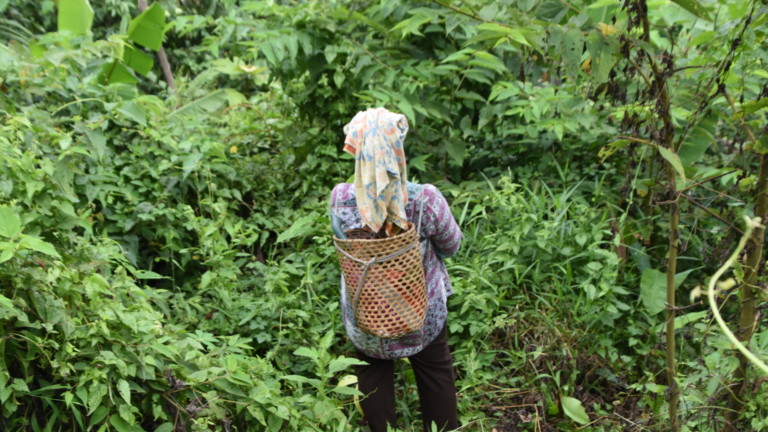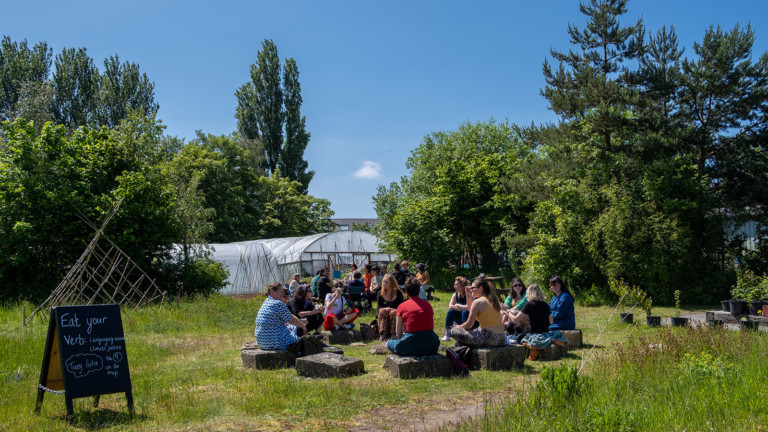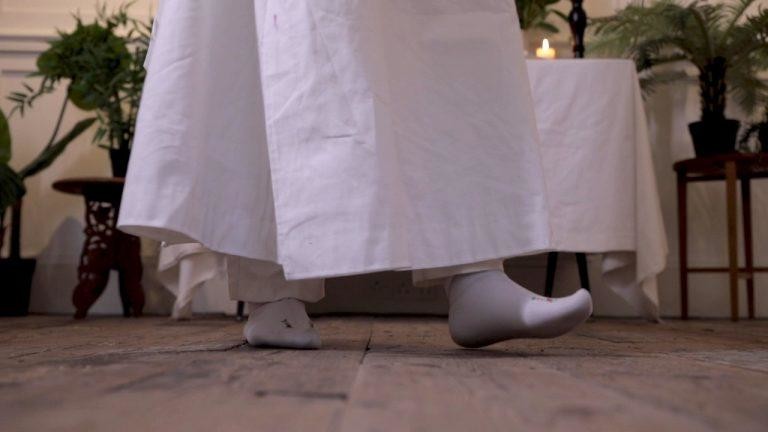We caught up with Emily (in between her other Heart of Glass projects) as she reflected on her collaboration with Youngsook, and what she learned from her time with their Malaysian hosts and collaborators - both human and more than human.
How did you first come across Youngsook’s work and why did you want to work with her?
My first introduction to Youngsook’s work was through a project she presented as part of our With For About 2020 conference back at the beginning of the covid-19 pandemic. Unapologetic Coughing was a live performance piece that responded to the racist backlash against Asian communities at that time. We then supported her with a second project called Not This Future and the current project builds on that collaboration. I admire the way Youngsook fearlessly steps into spaces. Her approach is rigorous and very brave, but also gentle. Gentle, in terms of the way she collaborates with people, and also the way she shares with audiences - which obviously really resonates with the way we work at Heart of Glass. Personally, I was really interested in Youngsook’s use and creation of ritual and her exploration of Foucault’s notion of ‘political spirituality’ in practice, particularly in relation to the theme of grief, which runs through many projects I work on.
Also our Malaysian collaborators Gerimis - who are they, how did that come about and why was it important to connect with them?
Like Heart of Glass, Gerimis is a community arts organisation. They are based in Kuala Lumpur and they focus on the art forms and traditional practices of the Orang Asli communities in Malaysia. In the early phase of this project, Youngsook and I were doing a lot of research around the ritual practices of Orang Asli communities. In particular, the dream practices of Senoi culture, the dreamer receiving a song from spirits, sometimes ancestral (both human or more than human beings), which is then shared with the community and provide a guiding path. While doing research into these practices we came across an article by a journalist called Wendi Sia who is the co-founder of Gerimis. Youngsook contacted Wendi and we learnt more about what Gerimis were doing and talked through our desire to learn more, she said: “why don’t you just come to Malaysia?” It turns out the British Council had an opportunity for collaboration and it meant we could actually come! It was one of those rare moments that doesn’t happen very often but is magic when it does!
You recently spent some time in Malaysia meeting communities and visiting sites. Can you tell us a little bit about the trip?
The field research was split into two parts. The first half we spent in a forest village in Lenjang, Pahang. I would describe most of that phase as deep listening. We spent a lot of time listening to elders, the shaman and to community members. It was a kind of whole body listening really. Partly for reasons around language, but also because we were in this completely different context and living with a completely different understanding and relationship to the world around us. So that was very special. We were very privileged to get to experience a healing ritual that the shaman and community shared with us. We learned about the specific plants and flowers that are crucial to that ritual, finding them in the forest and bringing them back to the village to prepare. The second part of the trip was spent in Perak, learning about the history of mining and current practices. We visited museums, and sites where extractive practices and monoculture plantations continue to destroy huge areas of forest and land in the pursuit of resources like limestone, quartz, kaolin, timber and palm oil. These practices are causing massive issues for the communities that have been looking after forests for generations. From the pollution and destruction of waterways to forcing animals into spaces where they wouldn’t have previously been.
What was a memorable moment from your trip?
Too many! Being in the forest and everything that means, in terms of your sense of time and presence. Meeting with the shaman, participating in the healing ritual, hiking through the forest, swimming in the river… It was a stark contrast, I suppose, having been deep in the forest and then stepping out of it and seeing the devastation around it - and the sense of urgency that comes from that experience. The shaman told us that every single inch of soil has a soul, so when you put that put together you appreciate the scale of the loss that this destruction represents. A loss for everybody. We heard advice to bring home to help us think about our ecological loss in the UK. Once it’s dead it’s dead. For the places you can never bring back, you grieve like you would for dead relatives, and then you need to learn from that loss and take that knowledge forward to think about your next steps.
What have been the key learnings you'd like to share so far?
A challenge for me personally has been coming back into this layer of the world. The challenge of leaving and knowing that what I experienced and what was shared is not something I can understand immediately - learning around Semai cosmology is something that I know will continue to unfold for a long time. And then learning around collaboration and what this means across time and distance, I know that our opportunity to work with Gerimis and to begin a relationship with the community in Lenjang is a gift, and so, given the long-term nature of many of the projects that I work on, there are the seeds of how to continue and grow this collaboration to pay attention to.
What’s next for the project?
Since coming back, myself, Youngsook and Wendi have been collating our research and we will share our journey through an online publication created by Gerimis and Youngsook. The project involves weaving stories and experiences between different places, so we are now in the phase of developing the UK thread of the project working with mental health and domestic abuse support charity Chrysalis Centre and returning to Colliers Moss Common in St Helens (cared for by Mersey Forest and once the site of Bold Colliery). Over the next 12 months we’ll be doing seasonal walks to explore the impact of loss on the land but also on individuals and communities, asking how rituals might help support the process of grieving for these experiences. We’re also starting to explore other threads, including continuing our conversations with Gerimis in Malaysia and developing links with communities in Vietnam and South Korea.














 Free
Free